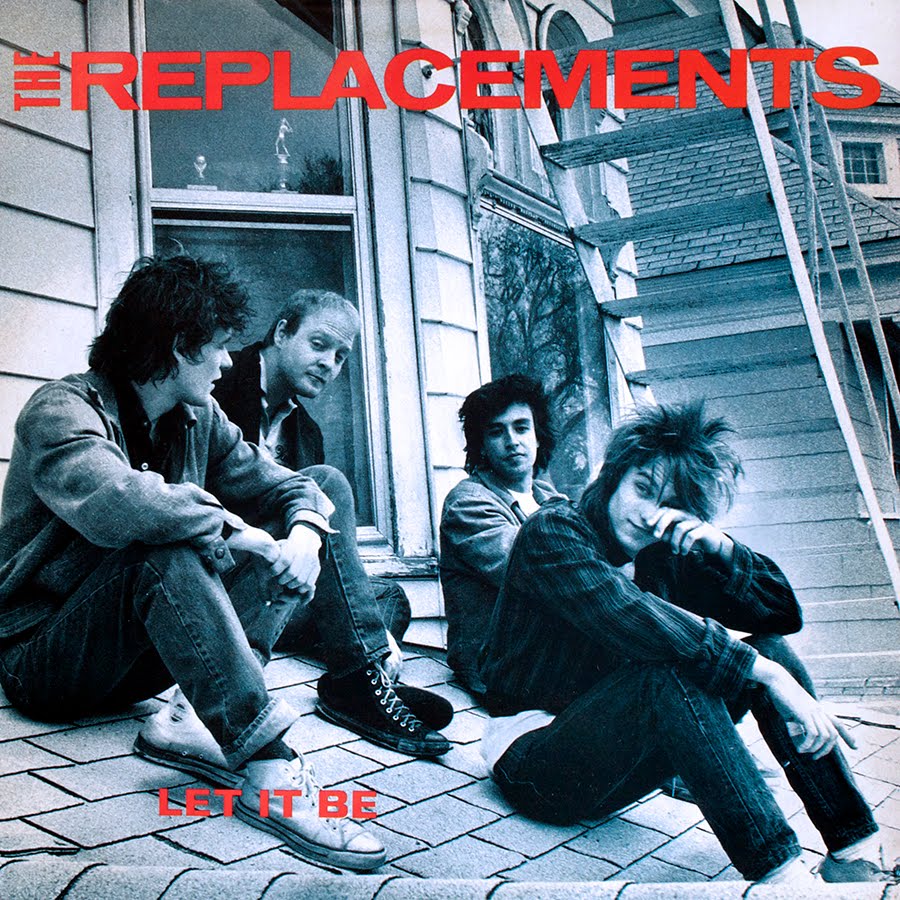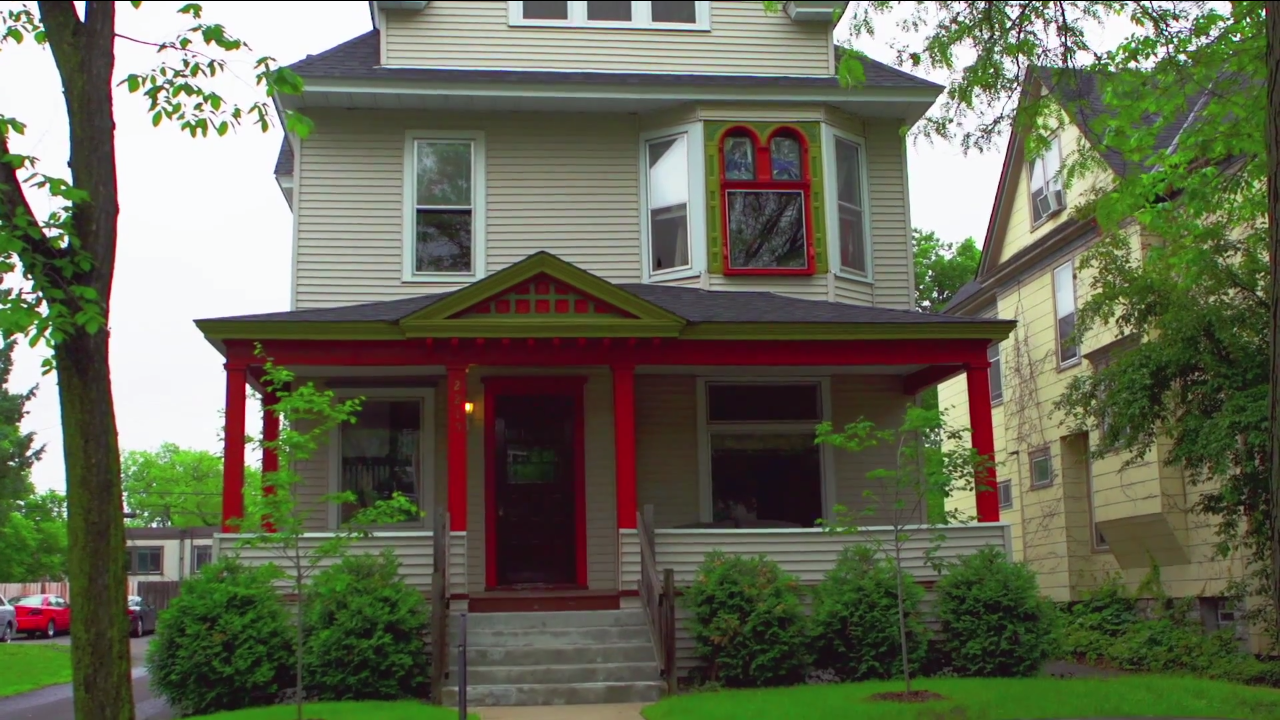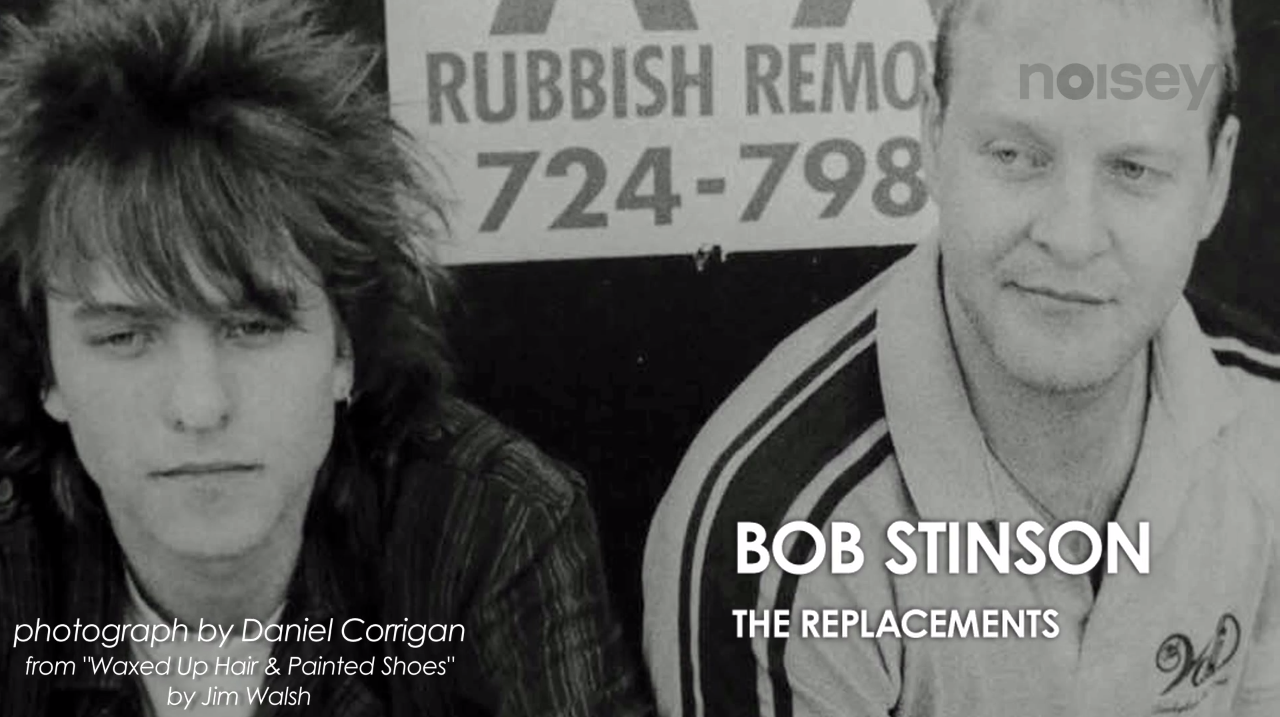If you haven’t watched the third ep of Made in America – Made in Minnesota, do so, above, right now. Directed by Lance Bangs—a documentary filmmaker with an encyclopedic knowledge of music—this episode gets under the skin of the Minneapolis music scene both 30 years ago, and now. Central to this is The Replacements, a band who bridled punk attitude alongside an emotive, anthemic, and distinctly American sensibility, imprints of which can be found in artists as seemingly disparate as Green Day, The Cribs, and Nirvana, not to mention fellow Minnesotans, The Hold Steady, who also feature in this episode. Below is an extended conversation between Lance and The Replacements’ bassist Tommy Stinson, (who’s also played in Soul Asylum and Guns ‘n Roses). They discuss The Replacements early days, the Minneapolis scene, the passing of his older brother (Replacements’ guitarist Bob), and the band’s subsequent reunion.
Lance: When did you start responding to music growing up, was it stuff you were listening to or having bop around music already playing around the house?
Tommy: My brother was off in a boy’s reform house when I was eleven. At that time, I was in a lot of trouble. I’d been in jail three times for stealing and was on a really bad path, but he came home with some instruments. He was a guitar player, and brought this guy who he had lived with in this group home setting, and showed me how to play bass. He caught me messing around one day, and asked if I wanted to play, and I said sure. I was monkeying around it, and then I hurt my fingers. It wasn’t as easy as all that. The beauty of it was he’d bribe me to play by offering me candy bars, and Cokes and things like that because I’d cry and he’d keep pushing and pushing me. Eventually we played our first gig, a kegger party, and I realized “Oh, someone likes me now,” y’know? There was a whole switch over. I owe it all to Bob, cause he gave me this life that I cherish. Somewhat.


People still just kind of conversationally have stories about him, or about the last time they saw him walk by. Do you have a sense that he still has a presence in Minneapolis?
For sure there, but definitely wherever I am. He’s always around. I’ll put it that way. I suppose cause he’s my brother there wouldn’t be any way around that, for good or bad [laughs].
Videos by VICE
Can you talk about that neighborhood that you guys were in?
The neighborhood itself was working class. The thing that has to be emphasized in the Minneapolis scene, and the groups like Replacements, Hüsker Dü and Prince is that it was the perfect melting pot of musical styles. I mean I don’t think Prince was drawing off the Replacements per se, but we couldn’t help but be influenced by Prince, or The Time—my sister was super into The Time. I listened to those records all the time with my sister, as part of the makeup as you’re growing up.
The thing to remember is there was punk rock, dance music, obviously all these genres represented, and you couldn’t help but be influenced by it all. That’s the bigger story about Minneapolis. In the early 80s it was a perfect storm of a bunch of stuff coming together. Thankfully we were part of that and got to be influenced by it, and part of that historical moment or whatever. There’s the bigger story with The Time and Prince and how First Avenue became the theater for all of it.
Speaking about First Avenue, what did you see there?
I saw a lot of crap, but that’s where we all grew up. There were a couple of other places that we’d play like Goofy’s, and there were a couple of strip bars that changed into venues. But that was the main venue and within that we saw a lot of great stuff, and a lot of touring crap.

Was there a sense when other bands would come through that they weren’t that great, that what you had going on in Minneapolis was more interesting?
No, I don’t think I pondered it all that much. When I was of age to get in there I remembered seeing lots of stuff, like Frankie Goes to Hollywood or Gang of Four who were incredible. The To Hell With Poverty tour was fucking incredible. I was 17 and since I was underage I had to work there. So I was working with the PA company, moving PA cabinets, and one of them just about toppled over me while I was pushing it back into the truck after the show. I’m this little guy pushing this massive cabinet up this ramp, and I would’ve been crushed if someone hadn’t moved me at the last second. That was a great show! I mean, you’d go there just to go there. I’d go just to hang out once I was able to get in, even if it was shit I didn’t like. I saw my fair share of crud and good stuff—Gang of Four being one of the better ones.
Were you guys listening to other contemporary English bands like that?
I was seven years younger than all of them, so I had a different thing going on. I was pretty much stuck in The Clash, Generation X, The Jam, that kind of English punk rock. And Paul and Bob and Chris all had their own kind of things going. Paul saw U2 when they first came to Minneapolis, and he was blown away. And there were lots of things that came through that one or a couple of us saw.
In that neighborhood, is that where that house on…
Bryant and 22nd, Minneapolis. That house is still standing—although it looks nothing like it did. I saw it last summer, and they got rid of the staircase in front, they put a garage in the back where I had fallen off a tree and landed on a picket fence and sliced my armpit open. It looks like they’d taken good care of the house. When we got that house, my mom was a bartender and one of her friends had this house that was kind of a flophouse, and he said, “If you need a house, you can rent it out and fix it up.” So we had to patch it up and make it livable. We put a little stage in the basement so we could rehearse, and we made it our place, and it was a big old Victorian house and it was great.
Do you still respond to music that’s coming out of Minneapolis?
Yeah. I mean, the Minneapolis scene has changed, but all scenes change and that’s just a fact. I haven’t seen The Hold Steady play before, but they’re great. They know how to control a crowd. I’ve been friends with Craig for a while, but I’ve never gotten a chance to see them, never was in the right place.
Another person we ran around with in the city was Lori Barbero, could you talk about meeting her?
I met her at the Longhorn when I was fourteen or something that. Lori Barbero’s our oldest family friend, she’s always been there. Of all the people in Minneapolis that looked after my brother, she was always there. She was kind of the mother hen of everyone that came through, and represents personality.
She’s got a really good personality, she’s a really good person.
That’s exactly why she’s there. When you came through town, and you were anybody, you knew Lori. If you didn’t, you didn’t really come through [laughs]. She’s just a fucking straight up music fan. She’d throw parties, the whole thing was predicated on music, it was great.
Were you following what Bob was up to that whole time, like when Hüsker Dü would put stuff out?
We were following them a little bit, but not really. I was still in high school and trying to figure out what the fuck I was doing, then these guys were total fuck ups, and older than I am, it was weird. I finally came to a point in my life where I joined the party.
Getting ready to do the shows this year, did you listen to your old recordings, or did you just know what you were going to do?
“Nowhere is My Home,” I had to dig for that one. “White and Lazy” we kind of busted out. A lot of it I just remember. There’s been a couple things I had to go back and kind of listen to, but I remember all this shit. I haven’t listened to these records in fucking forever. I’d play a couple of these songs with Paul over the years once in a while.
Can you tell the story about getting back together and doing that record?
The short end of it is, Bob had a stroke and went down. Some people we know that are friends of ours and have been involved for years decided we should do a fucking benefit record cause he was dirt-ass poor and needed to pay for medical bills. So, we all rallied together and it’s kind of a beautiful thing. Totally proud of that. Sadly it ain’t making him any better, but it is helping his family survive and move forward. That’s kind of been the catalyst to get together and play these shows.
People have tried to get you back together, and it’s great you’re finally doing it. Has it felt good to be in front of an audience that wants to hear those songs?
Oh yeah, it’s a fucking scream! [laughs] We’re having more fun than we should be allowed to.

And you’re time in Soul Asylum, you’ve played with them for a bit in the last decade.
Another one of those moments where a guy that was too young to die, died. His wife asked me to fill in for him so he could fulfill his dying wish, what do you say to that? I went to school with Dave, I was in 9th grade and he was in 12th. It was a no-brainer; it was like of course. It was only around two years ago where I really didn’t have the time [to play with them] anymore. But I love them, love dave, love dan.
Did you feel like because of Minneapolis there were things that were different about you from everyone else?
Yeah, like I said earlier there was a melting pot aspect to the musical scene. In the 80s if you look in any one town, Minneapolis really had a diverse thing going on. Not that we were on hit radio all the time, but when I think about it there was a lot of musical things that were intertwined a little bit. I may be imagining it, but you had Prince, The Time, us, The Suburbs, it was really that thing that let us differentiate ourselves from everyone else.
Related:
More
From VICE
-

Screenshot: Virgin Interactive Entertainment -

AEW -

Screenshot: Crave Entertainment -

Screenshot: Activision
